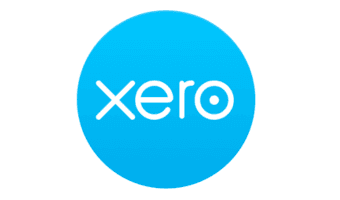Business.com aims to help business owners make informed decisions to support and grow their companies. We research and recommend products and services suitable for various business types, investing thousands of hours each year in this process.
As a business, we need to generate revenue to sustain our content. We have financial relationships with some companies we cover, earning commissions when readers purchase from our partners or share information about their needs. These relationships do not dictate our advice and recommendations. Our editorial team independently evaluates and recommends products and services based on their research and expertise. Learn more about our process and partners here.
QuickBooks vs. Xero Comparison
QuickBooks Online and Xero are among the most popular accounting software choices for small businesses. Learn more about how they compare.

Table of Contents
Accounting software helps business owners invoice customers, maintain cash flow, perform essential financial tracking, manage finances and much more. Robust accounting platforms even automate repetitive tasks, helping you save time and money.
QuickBooks Online and Xero are two of the best small business accounting software solutions, offering a wealth of features and functions to help you better manage your small business’s accounting and invoicing. We compared their features and pricing to help you choose the right accounting software for your business.

QuickBooks Online vs. Xero Highlights
QuickBooks Online and Xero both help businesses easily send customer invoices, reconcile transactions and handle other accounting-related functions. They have distinct differences, however, that may make one or the other a more suitable option for your organization. Here’s an overview of how they compare.
Criteria | QuickBooks Online | Xero |
|---|---|---|
Starting prices | $20 per month | $20 per month |
Invoicing |
|
|
Customer service |
|
|
Mobile app |
|
|
Third-party integrations | More than 750 | More than 1,000 |
Who Is QuickBooks Online For?
QuickBooks Online is a great choice for small and medium-size businesses that need a reliable, feature-rich accounting solution. With a U.S. market share exceeding 80 percent, QuickBooks has been a proven leader in the space for more than two decades. Its widespread adoption means most accountants and bookkeepers are likely already familiar with its features and functionality. Like many of its competitors, QuickBooks Online offers powerful double-entry accounting and reporting features, along with a robust set of tools designed to help business owners efficiently and seamlessly manage their finances. Our comprehensive QuickBooks Online review delves deeper into what makes the platform a popular choice across industries and sectors.
Who Is Xero For?
Xero is an excellent option for new and growing businesses because of its straightforward interface and emphasis on simplifying accounting concepts for individuals who may be unfamiliar with financial jargon. Its tiered pricing structure includes a wide range of features at various levels and it doesn’t impose user limits, making it ideally suited to growing businesses that need more functionality as they scale. The affordable, cloud-based platform provides double-entry accounting and comprehensive reporting functionalities. Our detailed review of Xero explains more about its unique features, including time tracking.

Xero’s interface is free of jargon and clutter, making it easy to see and understand your business finances. Source: Xero
QuickBooks Online vs. Xero Comparison
Here’s how QuickBooks Online and Xero compare in pricing, support and essential accounting software features, including invoicing, mobile functionality and third-party integrations.
Pricing and Plans
Price is an essential consideration for any organization investing in accounting software.
QuickBooks Online Pricing
QuickBooks Online has five paid plans geared toward solopreneurs and small and midsize businesses.
Plan | Price | Features |
|---|---|---|
Solopreneur | $20 per month |
|
Simple Start | $35 per month (one user) | Everything in Solopreneur, plus:
|
Essentials | $65 per month (up to three users) | Everything in Simple Start, plus:
|
Plus | $99 per month (up to five users) | Everything in Essentials, plus:
|
Advanced | $235 per month (up to 25 users) | Everything in Plus, plus:
|
Consider the following pricing information when evaluating QuickBooks Online:
- QuickBooks Online offers a 30-day free trial to test the platform, but there’s no free tier.
- QuickBooks Online frequently offers introductory deals and specials, so check the website for potential cost savings.
- The vast QuickBooks ecosystem allows you to bundle the accounting software with other helpful solutions, including QuickBooks Payroll. (Read our review of QuickBooks Payroll for pricing details and other information).
Xero Pricing
Xero offers three paid plans based on the typical life cycle of a small business.
Plan | Price | Features |
|---|---|---|
Early | $20 per month |
|
Growing | $47 per month | Everything in Early, plus:
|
Established | $80 per month | Everything in Growing, plus:
|
Additional pricing considerations include the following:
- Xero has a free 30-day trial that also allows you to access add-ons such as Xero Projects and Xero Expenses.
- Xero provides seamless integration with Gusto Payroll, making it easy for your small business to handle payroll. The base cost is $40 per month, plus $6 per employee per month. (Read our comprehensive review of Gusto Payroll to learn more about the platform’s features and capabilities.)
- Xero allows unlimited users on all tiers.
Invoicing
Accounting software must include comprehensive invoicing features to help businesses avoid cash-flow problems.
QuickBooks Online
We were impressed by the invoicing features we evaluated in QuickBooks Online. They rank among the highest of all the accounting platforms we reviewed. Here are a few highlights:
- Mobile optimization: You can create and send invoices from either a desktop browser or the QuickBooks Online mobile app. Invoices are optimized for a mobile-first experience.
- Payment acceptance: You can accept online payments through the QuickBooks Payments system or a third-party processor such as PayPal or Square.
- Estimates: Users can easily convert estimates into invoices with QuickBooks Online.
- Automation tools: Automate your invoicing process with features such as recurring invoices and scheduled payment reminders.
- Time tracking: Billable hours can be synced with your invoice through the QuickBooks Time add-on.

QuickBooks Online allows you to invoice customers for partial payments. Source: Intuit
Xero
We found Xero’s invoicing tools to be highly capable. We particularly liked that the platform provides tools to customize your invoices with branding elements such as logos. Additional noteworthy features include:
- Quote conversion: Xero lets you convert quotes into invoices instantly.
- Payment acceptance: You can sync Xero with a PayPal, Stripe or Square account to accept payments online from your emailed invoices.
- Mobile invoicing: The Xero mobile app can also generate invoices on the go.

Xero’s invoices are saved in the cloud, allowing you to make changes without resending. Source: Xero
Customer Support
Businesses must be able to contact customer support through convenient channels at convenient times.
QuickBooks Online
- Availability: QuickBooks provides live chat and direct phone support Monday through Friday from 6 a.m. to 6 p.m. PT and Saturday from 6 a.m. to 3 p.m. Customers with an Advanced plan enjoy 24/7 phone and chat support.
- Community support: An active community forum provides guidance from other QuickBooks Online users and company representatives.
- Online resources: Webinars, video tutorials, blog posts and training classes are available via the QuickBooks website.
- Professional support: Certified QuickBooks ProAdvisors can give you one-on-one help using the software.
- Trustpilot rating: Intuit, QuickBooks’ parent company, scores a 1.1 out of 5 for customer service on Trustpilot, signaling some unhappiness with issue resolution and support.
Xero
- Availability: Customers can request assistance online 24/7 by submitting a support request. Once a request is submitted, a Xero representative will respond via phone or email within two hours. Direct phone support, however, is not available.
- Online resources: Xero Central provides a comprehensive assortment of videos, blog posts and other educational materials to help users navigate the software. Xero strongly encourages users to explore the resources before submitting a support request.
- Trustpilot rating: Xero’s customer support scores an average of 3.7 out of 5 on Trustpilot, signaling that its unique support model yields good results for customers.
Mobile App
A well-designed mobile app can save business owners time, allowing them to perform accounting tasks on the go.
QuickBooks Online
The QuickBooks Accounting app is rated 4.7 out of 5 on Apple’s App Store and 3.8 out of 5 on the Google Play store. Its features include:
- iOS and Android versions
- Dashboard overview
- Invoicing
- Payments
- Receipt capture
- Expense tracking
- Transaction reconciliation
- Customer messaging system
QuickBooks also offers two stand-alone paid add-on apps: QuickBooks Time and QuickBooks Projects. The Time app is available with the Essentials plan and above, while the Projects app is available for Plus users.

QuickBooks Online’s feature-rich mobile app allows you to track your business’s finances from a smartphone. Source: Intuit
Xero
The Xero mobile app is rated 4.6 out of 5 on Apple’s App Store and 4.4 out of 5 on the Google Play store. Its features include the following:
- iOS and Android versions
- Cash-flow tracking
- Customer and vendor contact management
- Bank account reconciliation
- On-the-go invoicing
- Automatic expense recording
- Apple Watch version with account balance and new transaction viewing
Xero also offers two stand-alone apps — Xero Expenses and Xero Projects — for users on its Established plan. The apps allow you to capture photos for receipts, submit expense reports, track time, and attach billable expenses and time to individual projects.

Xero’s mobile app helps you track cash flow, view sales and profits, manage expenses, and create invoices. Source: Xero
QuickBooks Online and Xero both offer robust mobile apps to help you run your business from a smartphone. The main apps garner similar ratings on the Apple and Google app stores, but there are key differences in their supplemental apps. Xero Expenses and Xero Projects are available only on the $80-per-month Established plan, while QuickBooks Time and QuickBooks Projects can be accessed on the $65-per-month Essentials plan and the $99-per-month Plus plan.
Overall, we give QuickBooks Online the edge because its primary app includes more accounting and invoicing features.
Third-Party Integrations
An accounting platform’s available integrations can be a game-changer for a business that must connect its finances to essential business software.
QuickBooks Online
QuickBooks integrates with more than 750 third-party business applications, including many well-known productivity apps and e-commerce platforms, such as:
- Amazon
- Bill
- Etsy
- Expensify
- Gusto
- Microsoft Excel
- PayPal
- Shopify
- SOS Inventory
- Square
- WooCommerce
- Zapier
- Zenefits
- eBay
Xero
Xero integrates with over 1,000 third-party business applications, including many apps that are popular with small business owners:
- Cin7 Core (formerly DEAR Inventory)
- Constant Contact
- Expensify
- Google Workspace
- Gusto
- HubSpot
- Microsoft Office
- PayPal
- Rippling
- Square
- Stripe
- WooCommerce
- Zapier
QuickBooks vs. Xero Summary
Xero is best for startups and growing small businesses on a budget.
Xero is a solid choice for startups and newer small businesses seeking a cost-effective accounting solution — especially those with only a few invoices and bills to manage. The Early plan is only $20 per month, and the company often offers special deals that can make it even more affordable. Plus, you’ll get unlimited users and access to hundreds of integrations, no matter which plan you choose.
QuickBooks Online is best for established small businesses.
Since QuickBooks Online offers more features but comes with a higher price tag, it makes the most sense for small businesses that are past the startup stage and focused on growth. With QuickBooks Online, you can expect more customization options and a feature-packed mobile app that allows you to enter bill payments, record transactions and more. You’ll also benefit from multiple customer-support options, which are particularly important if you’re managing many invoices and bills.
FAQs
Anna Baluch contributed to this article.





